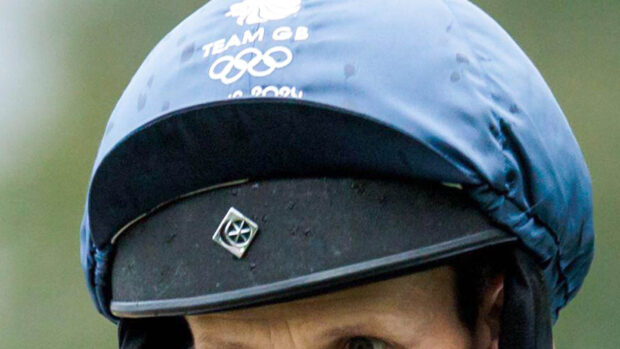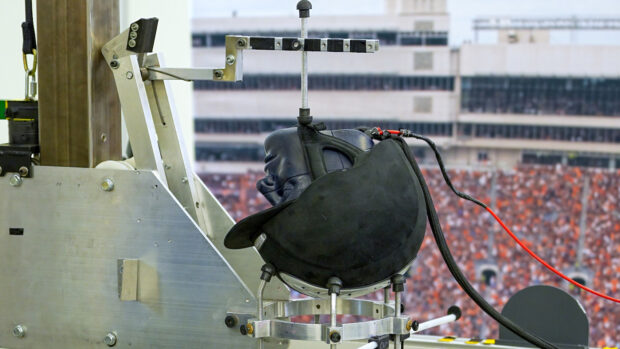Safety helmets are to be mandatory for all British Dressage (BD) riders except for advanced and above.
Earlier this year riders were asked to give their opinion on possible BD rule changes — which included safety helmets, allowing horses to be downgraded when they have reached the upper points limits for each level and a cap on the number of tests ridden in one day (news 28, April).
The move follows publicity surrounding a US dressage rider Courtney King-Dye’s serious head injury in March 2010 and the launch of a top hat with harness.
The new rules will come into force on 1 December and follow similar ones enforced by the United States Equestrian Federation and draft rules for 2012 for international competition which will be discussed at the FEI general assembly in November.
Member feedback
Paul Graham from BD said the association has had feedback from around 200 members.
“This change is to protect our members against sustaining a possible head injury. BD must be proactive rather than reactive, there are no ‘if only’ when it comes to members safety,” he added.
According to BD around 40% of those who responded wanted to leave the decision to wear a safety hat to the rider; the remainder supported mandatory safety hats.
“The FEI is still allowing top hats to be worn in the pre-test warm up and during the test. To keep as much in line with the FEI as possible we are still permitting top hats to be worn at the equivalent levels,” said Mr Graham, adding at present there are no plans to bring in crash helmets at the top levels.
“While it is true that there are very few incidents where a dressage competitor has received a serious head injury in competition, we should be looking at mitigating potential risk, not reacting to past incidents, or lack of them.”
Other rule changes
The number of tests that can be ridden in one day will not be limited as BD felt that “the incidents of riders over-stretching unfit horses was minimal”.
BD also asked whether horses should be forced to compete at a specific level once they had attained a certain number of points — as riders were finding their horses had reached the upper points limit of which they feel comfortable competing.
If a horse has too many points to be eligible for novice, for example, but the rider has never competed at elementary, they can apply to BD, pay £60, and have the horse “downgraded”. The horse will be allocated few enough points to allow the rider to continue at novice for some time.
For more information visit: www.britishdressage.co.uk
For reactions from riders at all levels, don’t miss Thursday’s issue of H&H (8 September).




